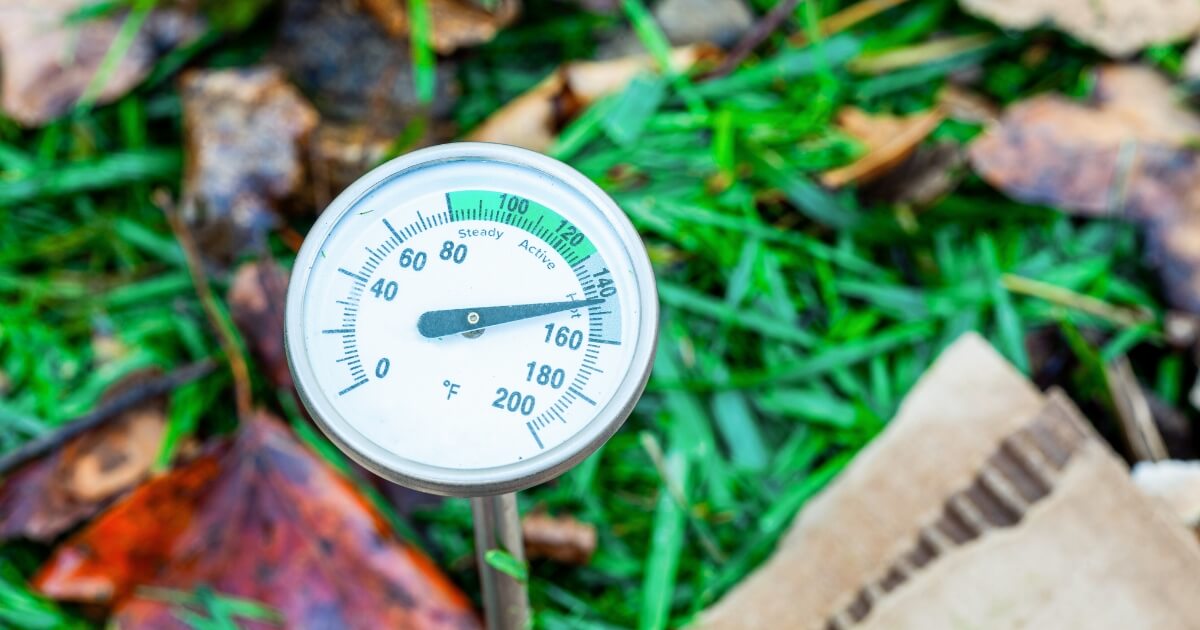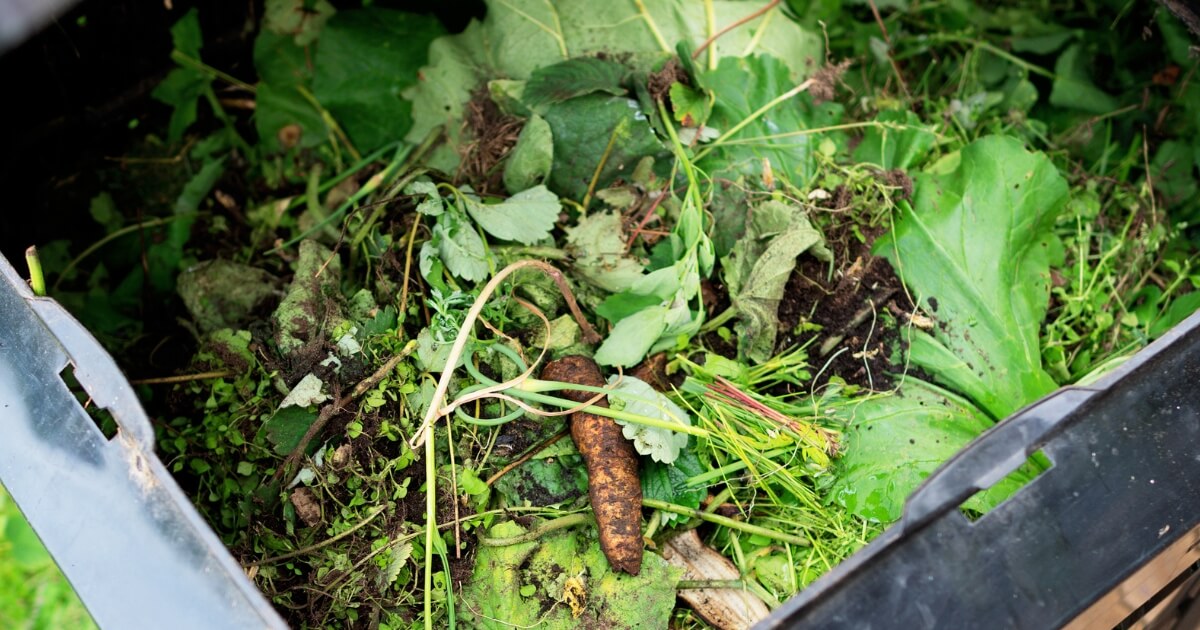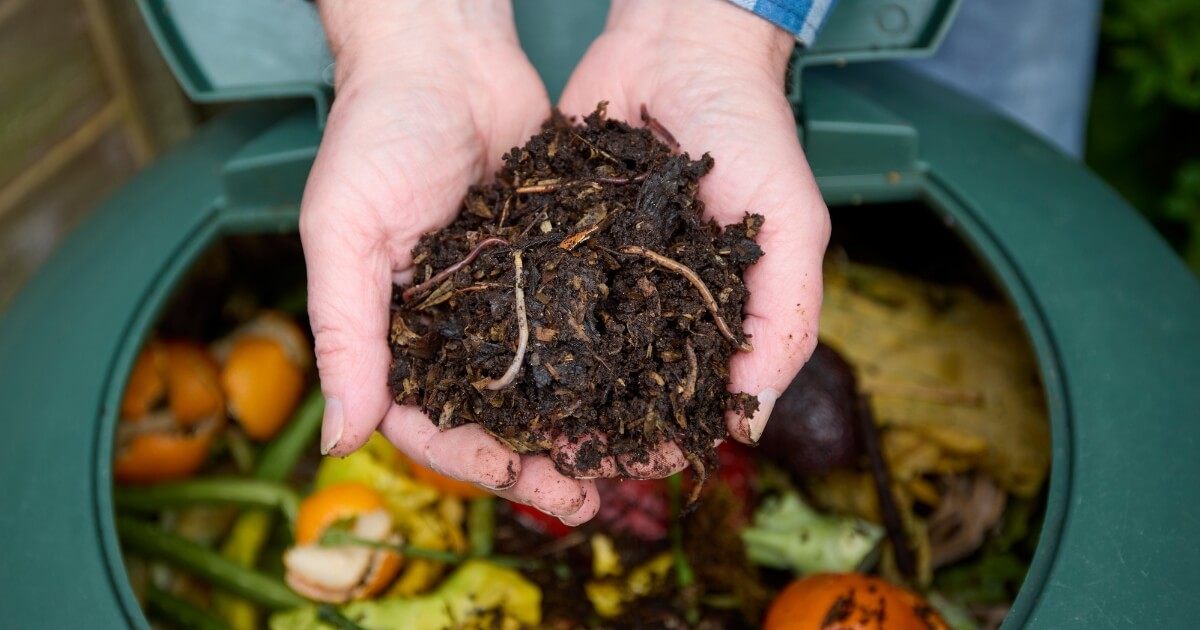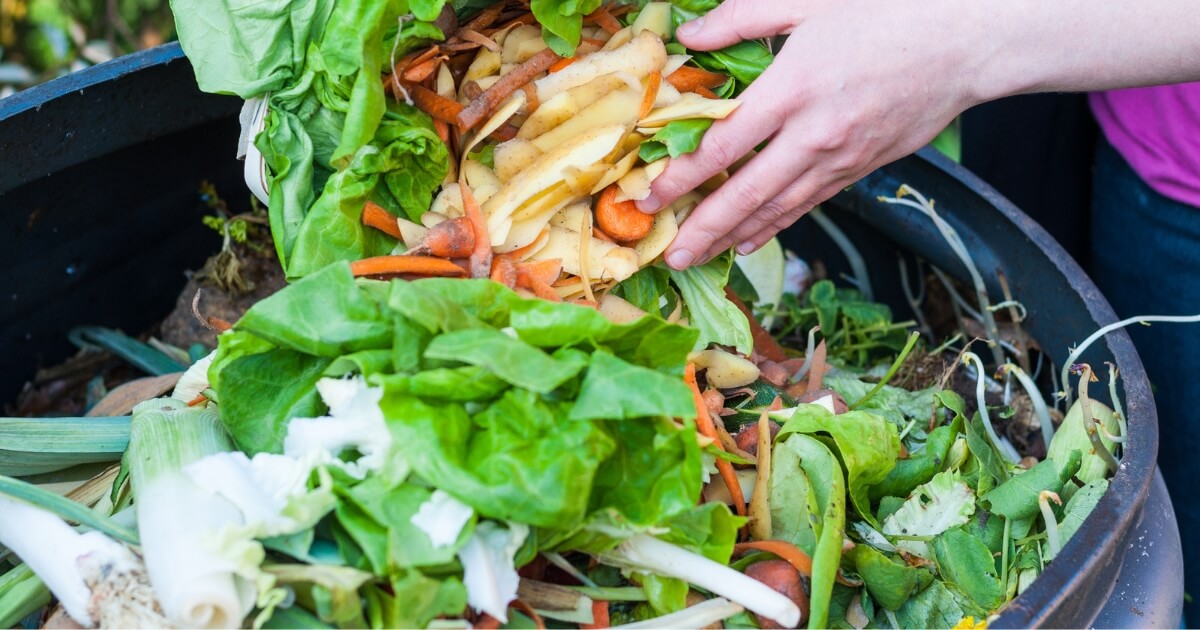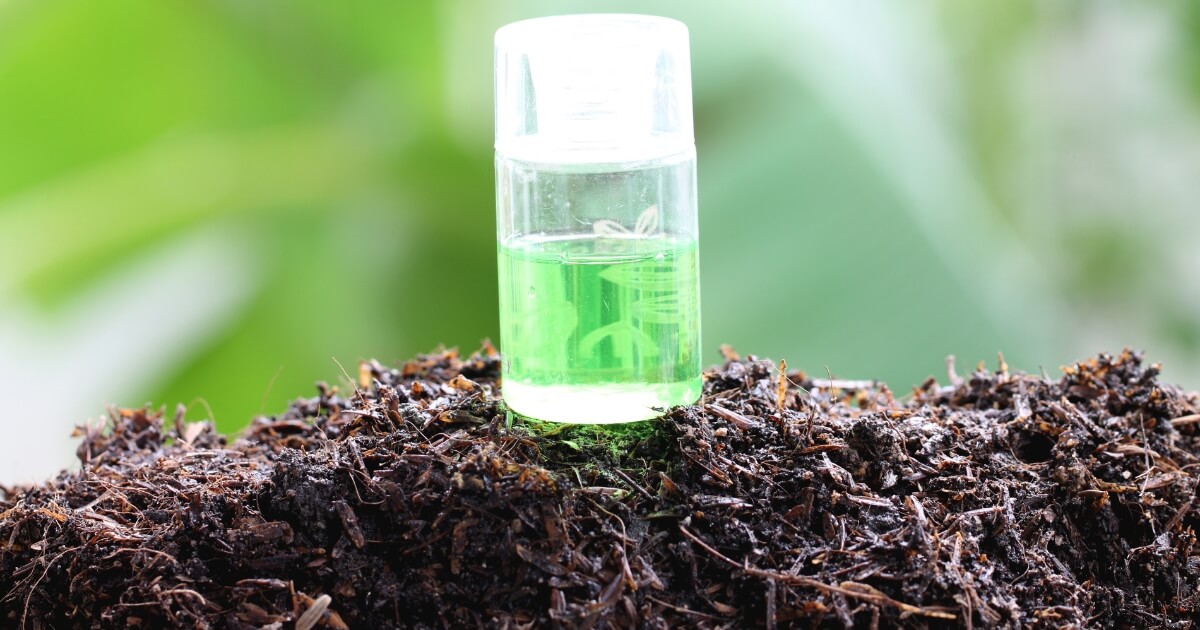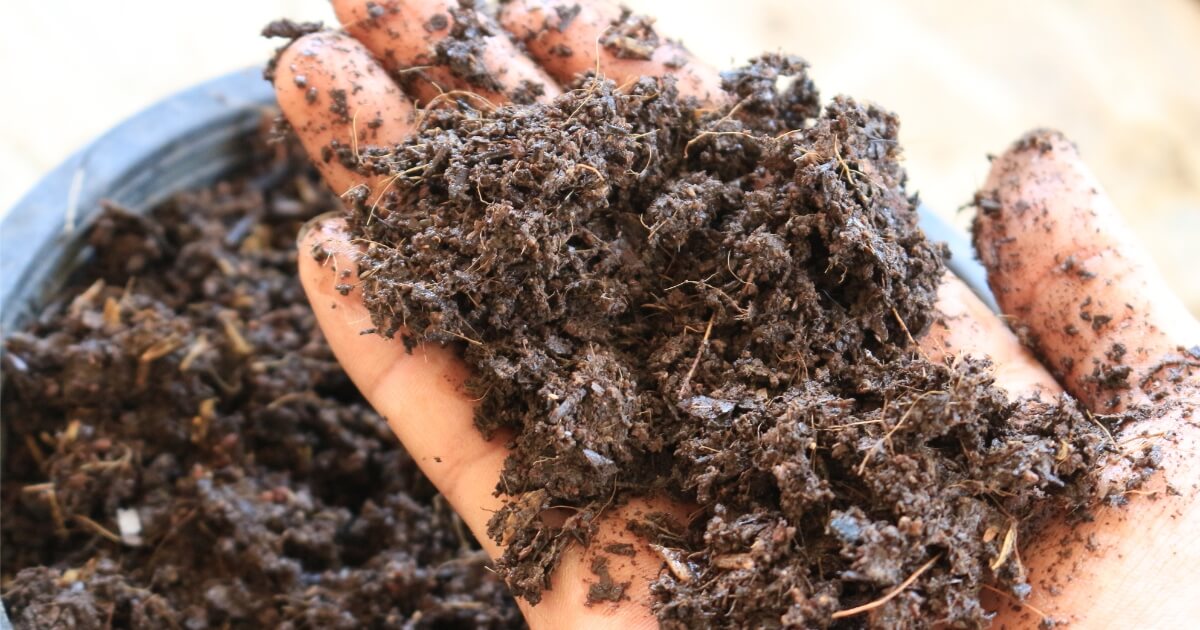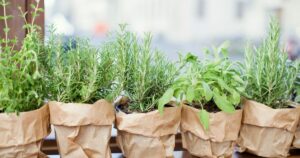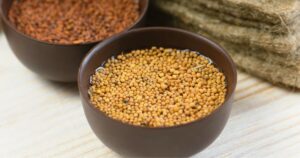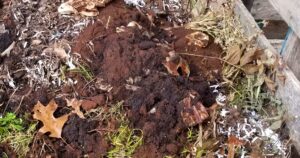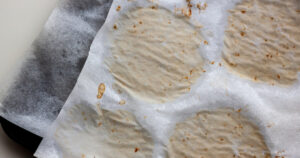Adding nut shells to compost is a great way to recycle such a bulky waste product for good use instead of sending it to the landfill.
It’s safe to compost most nut shells, but I’ll explain which types are safe for your compost bin and which you should avoid, and why.
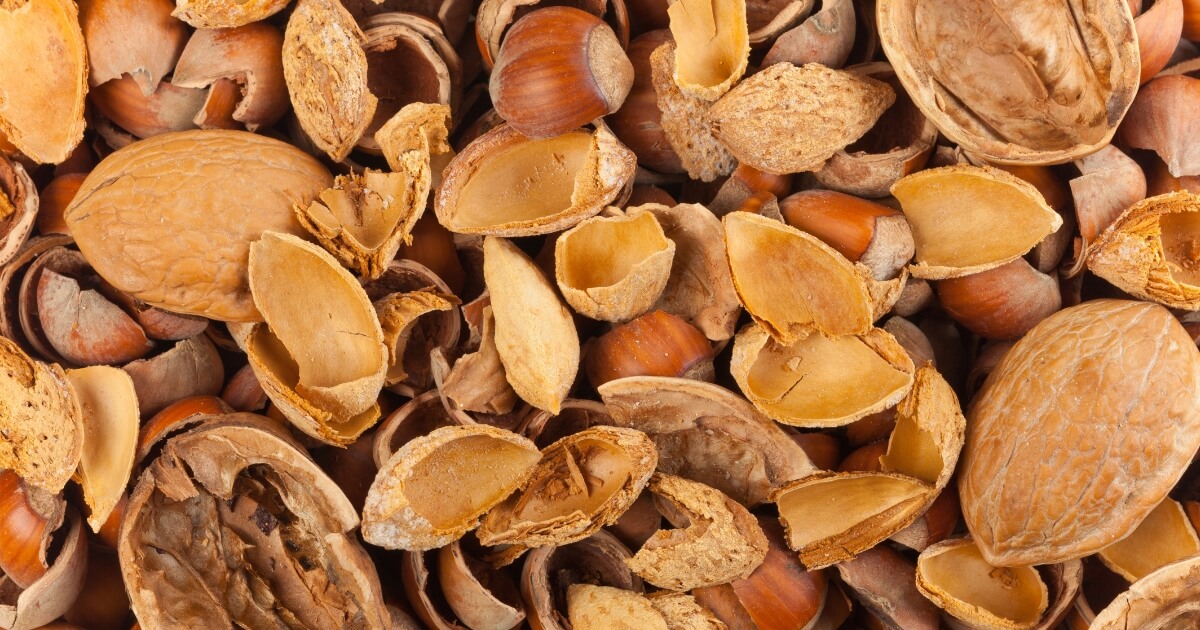
And using the tips in this guide will help you break them down faster, so you’ll have a wonderful soil amendment.
Are Nut Shells Compostable?
Like any new ingredient going into a compost pile, nut shells have their benefits and disadvantages to consider before adding them on a regular basis.
The pros of composting nut shells include:
- Excellent source of carbon or “brown” material
- Adds lightweight bulk to compost
- Adds various trace nutrients to finished compost
- Texture improves drainage in the compost
- Texture increases oxygen flow in the compost
- Reduces landfill waste which helps the environment
The cons of composting nut shells include:
- Nutshells are dense and woody, taking longer to break down
- Nutshells require crushing for faster-composting results
- Compost will need extra “green” material to balance the high carbon content
- Some nut shells contain harmful chemicals that inhibit plant growth
A good tip is to always crush or grind any type of nut shells into as small of pieces as possible before adding them to your compost bin or pile. The tiny shell fragments will decompose much faster, so your compost finishes sooner.
Soaking nut shells for several days is another way to help soften them for easier breakdown inside the compost.
Tossing whole nut shells into compost can take a year or more for the harder varieties to break down.
However, many people don’t mind the look of them in an otherwise completed batch of compost, and they’ll eventually break down the rest of the way once you spread them in your garden.
Popular Nuts To Compost
Next, I detail the most common nuts people consume and whether or not you should compost the shells.
Peanuts
Peanut shells make excellent compost material because the fibrous shell casing isn’t as hard or thick as other nuts, so it’s easy to crush and quickly disintegrate within the pile. Technically peanuts are a legume such as lentils or peas.
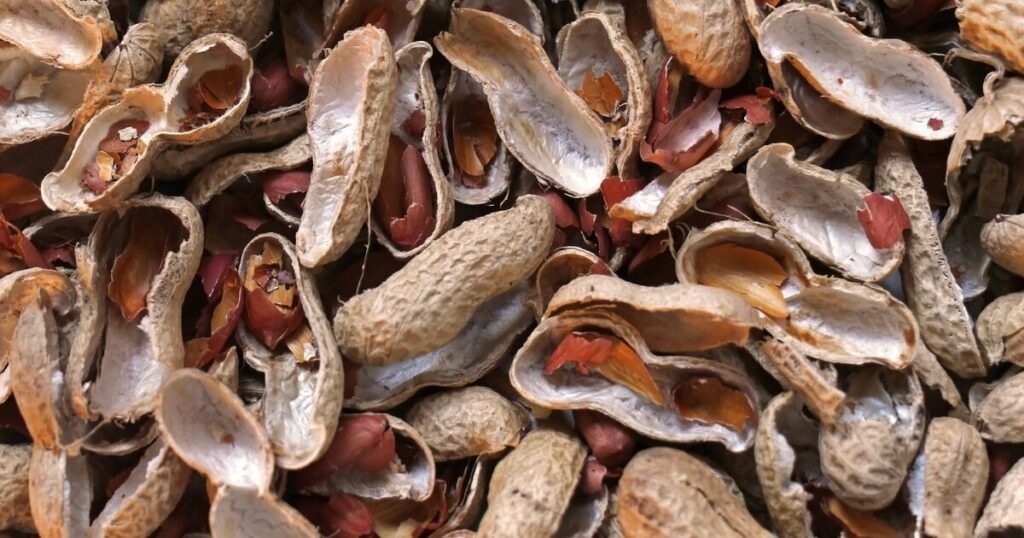
Peanut shells provide a good amount of cellulose to the compost, which will help feed hungry microbes and keep them actively processing the material inside.
Do not add salted peanut shells directly to your compost, as the sodium content can cause issues with root development if too much is used as an ingredient.
Soak the shells in water for 24 hours and rinse well to remove most of the sodium.
Pistachio Nuts
Pistachio nut shells are small, hard, and thick, but you can still compost them successfully and safely as long as you wash off any salty residue first.
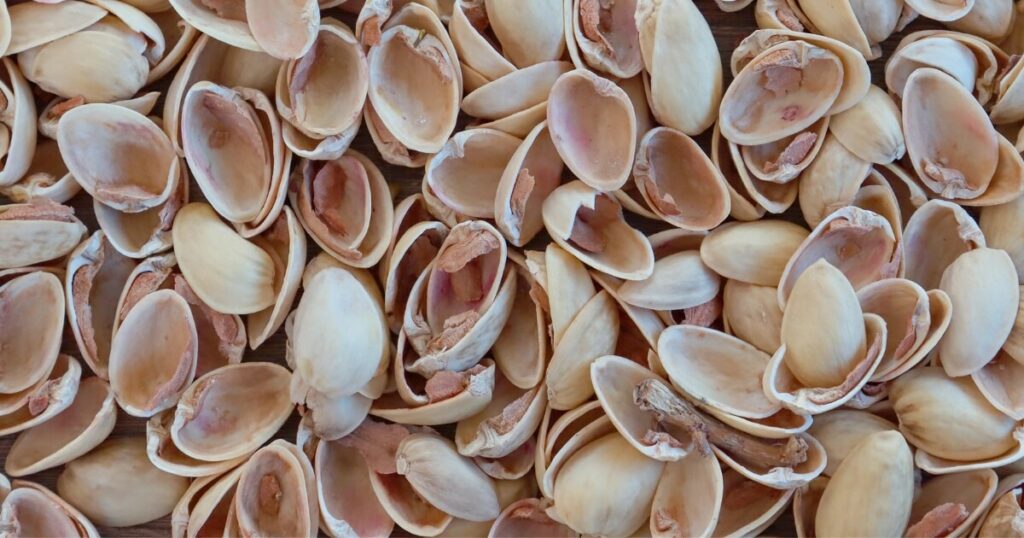
Toss the shells into an old pillowcase and smash them with a hammer to reduce the size, and then soak them a day or so to increase their softness before adding them to your compost.
Pistachio shells provide trace amounts of iron, potassium, and copper to your compost nutrient blend.
Almonds
Almond shells are another thick and hard material that can pose issues during composting, mainly for the length of time they take to break down. The shells add a fair amount of magnesium to the compost.
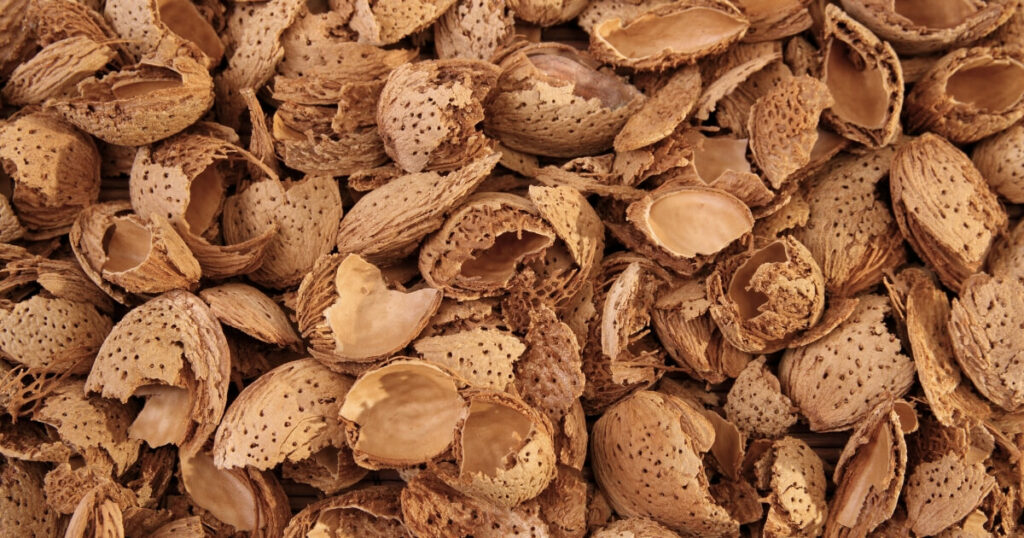
I’ve found it easiest to grind or chop up batches of almond shells in a food processor before adding them to the compost bin, so they incorporate quickly.
That way you’ll have less of a hassle to sift any remaining large shell pieces from the compost when it’s complete and add them to a new batch to finish breaking down.
Walnuts
While walnut shells can add iron and potassium to compost, you should do so with caution when adding large or consistent amounts to your bin ingredients.
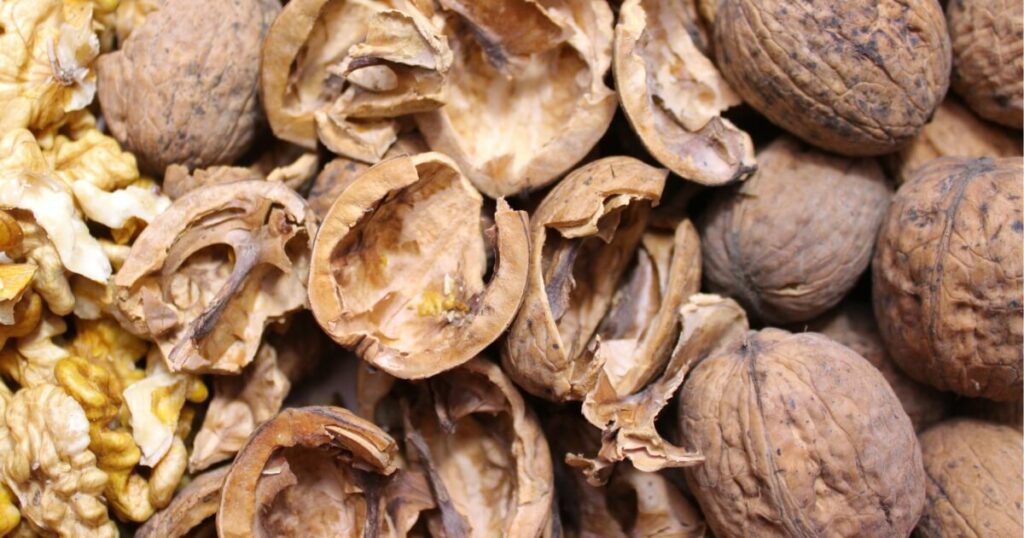
The reason for concern is that all types of walnuts contain a chemical called juglone, that inhibits growth in certain plants, such as tomatoes.
Black walnuts contain the highest level of juglone, so avoid using the nuts or shells from this type of walnut in your compost to prevent issues in your garden.
If you have a small batch of walnut shells, you can crush them and incorporate small portions into your composter over several weeks to give the microbes a chance to process the chemical out.
Hazelnuts
Hazelnut shells are perfectly safe to compost, and they will add a bit of iron and potassium to the final product, which your garden plants will appreciate.
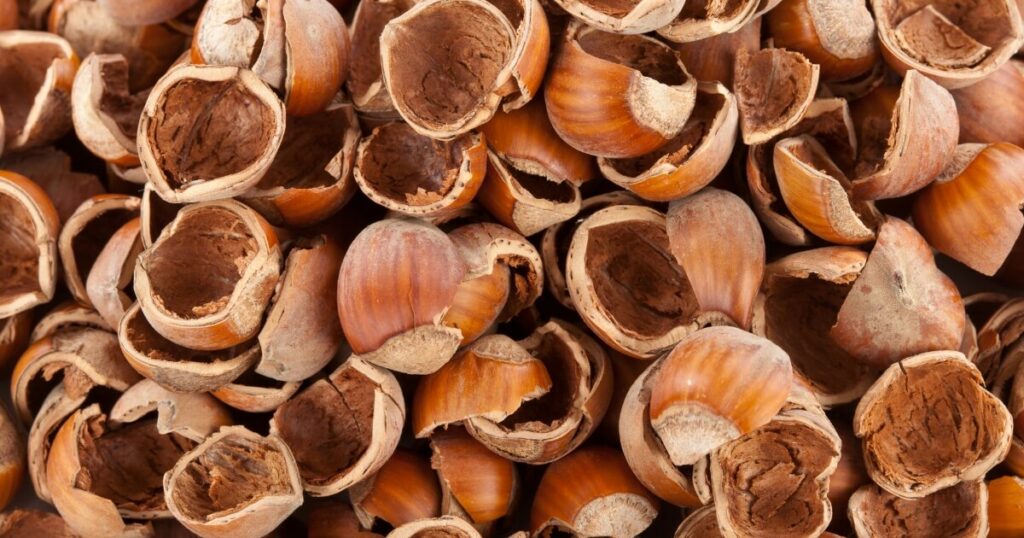
Hazelnut shells are very woody and dense, so it’s best to crush them before adding them to your composting system.
However, if your compost tends to have a lot of “heavy” or “sticky” ingredients, such as wet grass clippings, you can use whole hazelnut shells to help keep the material better aerated.
Brazil Nuts
Brazil nut shells have a thinner and more layered structure that almost peels apart, making them easier to break down in compost, often within 4-6 months.
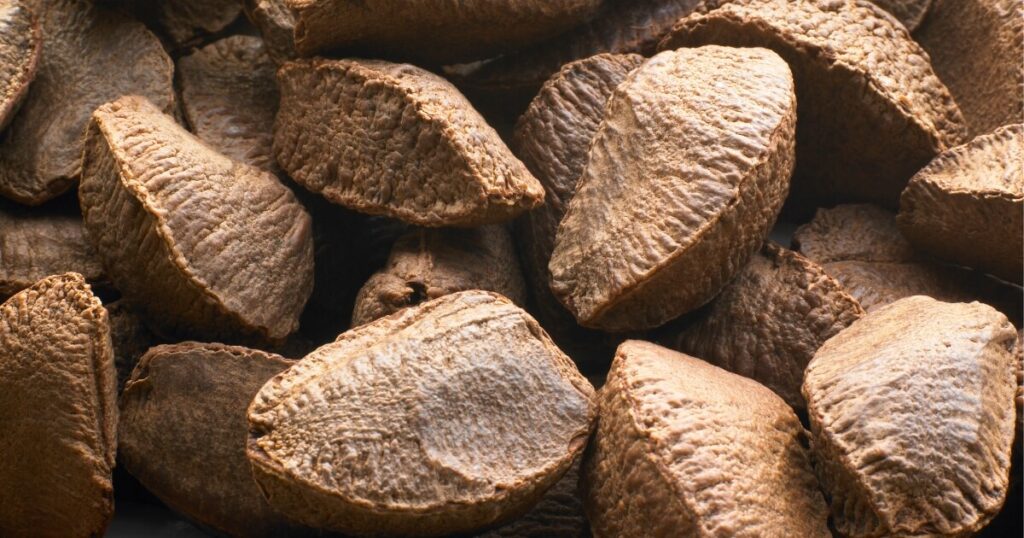
You can lightly crush the shells to reduce bulk, but otherwise toss them right into your compost pile or bin along with the correct ratio of green ingredients.
The shells impart trace amounts of copper, magnesium, phosphorus, and zinc to the compost, which are all beneficial to help plants grow.
Pecans
Pecans are another nut that contains the damaging chemical juglone. However, the amounts are much less than found in Black Walnuts, and a hot composting system will clear the chemical during processing.
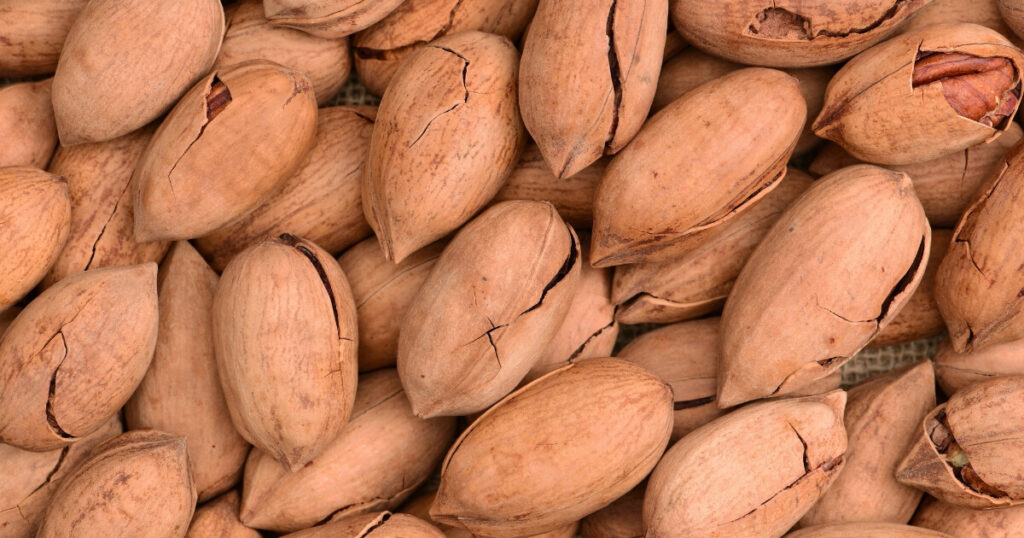
Luckily, pecan shells are dense yet thin, so they are easy to break into smaller pieces by stomping on them. Soak them in water afterward for a one-two punch that will quickly break down within your composting system.
Pecan shells offer a good source of cellulose and a bit of fat that will help feed the compost microbes, so they stay active.
Cashew Nuts
Cashew nuts shells are excellent to compost for several reasons. The first being they are smaller and have a much softer inner shell material that breaks down easily.
The harder outer layer of the shell will take longer to break down and, in the meantime, helps keep the compost airier. More air gaps will increase oxygen flow and enable good drainage, so your compost stays in good condition.
Another reason to compost cashew shells is that they will add trace amounts of copper, magnesium, zinc, manganese, phosphorus, and selenium to the final product.
Chestnuts
Chestnut shells have a large, spiky, and hairy outer husk with the nuts inside. The chestnut fruit also has skin that needs removal before eating.
Both the outer shell and nut skin are safe for compost and will add potassium to the mix. Most people who purchase bulk chestnuts from the grocer won’t have to deal with the hard and thick outer shell and will only have the thin skin of the nut to compost.
Gather the skins after roasting and chop them up while they are still warm and soft, then add them to your compost at a later time with the appropriate amount of nitrogen-rich material.
Beech Nuts
Beech nut shells contain trace amounts of iron and potassium, which are beneficial compost nutrients.
The small, four-sided, spiky nut is less common to find in retail stores and is more often gathered off trees on private property, leaving large piles of nuts and shells that owners can compost.
It’s best to leave the shell or husk whole and toss small batches into your compost to let them process. The shells take a long time to fully decompose, but they will improve the texture of the compost, which will benefit the plants you spread it around.
If you have a large quantity of beech nuts to deal with, consider making a separate cold compost pile of the nuts in an out-of-the-way area on your property. Letting the beech nuts decompose naturally will be less stressful than trying to incorporate them into your regular composting system.
